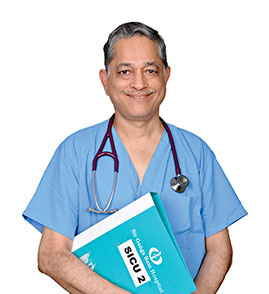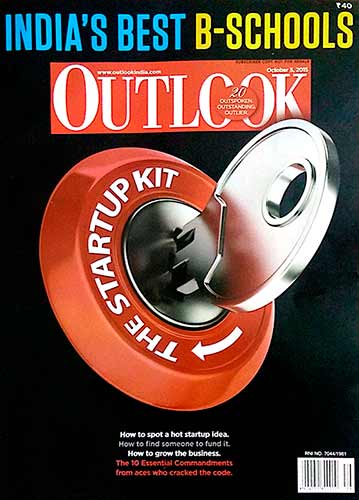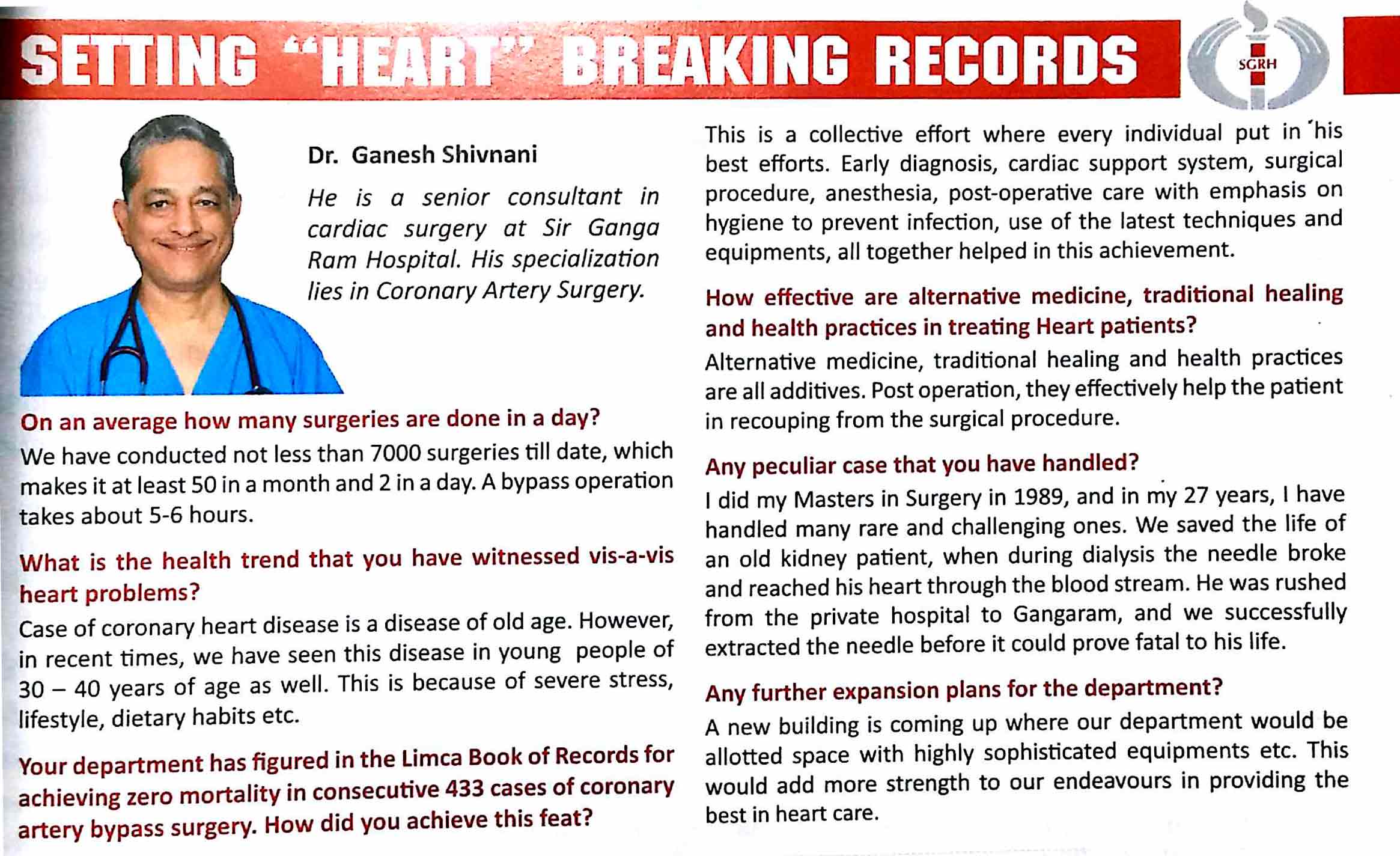Economics Of Surgery In India
Dr. Ganesh Shivnani one of the leading cardiac surgeons in the country, speaks about the economics of cardiac surgeries in India and the emerging trends in the medical industry:

Developing countries like India might not keep public health as one of the top priority, such as in the US. Be it cataract, obstructed labor, symptomatic hernia or anything else -it adds a significant burden of ill-health on the rest of the population.
Despite the lack of health care facilities in India as compared to the developed nation, India still continues to one of the most preferred nations for 'medical surgeries'. The medical tourism in India is known to be growing at an exponential rate. It is expected to be around $7-8 billion dollars till 2020 (according to a survey by Confederation of Indian Industries conducted in October 2015).
The primary reason that India attracts so much medical travel value is because it is extremely cost-effective and high-quality service industry.
BW Businessworld spoke to Dr. Ganesh Shivnani, senior consultant and chairman, department cardiac surgery Ganga Ram Hospital, New Delhi. Dr. Shivnani (55) has made an unusual record in LIMCA Book of Records for performing most successful Bypass Surgeries. He completed 446 consecutive coronary bypass surgeries without any casualities (from Feb 18, 2013 to Feb 15, 2015). For the last two decades he is leading a successful medical practitioner with 5000 bypass surgeries to his credit. Besides this, he has also shown his up-to-mark proficiency in Valve Repairs and Replacements.
Though Dr. Shivanani works in a very tight schedule throughout the day and takes up to four surgeries on a given week-day, he found time to interact with us. An extremely down to earth person, with a genuine smile he welcomes me to his office.
Excerpts from the interview:-
Sir, please share your journey behind featuring in the LIMCA book of world records?
It came as pleasant surprise to me that the number of coronary bypass surgeries I had completed, qualified as unusual entry in the book of world records. I actually, never thought on those lines. I was happy doing my duty as a doctor but my colleagues pressed me to register. So, all the credit goes to them. Later, however I realized how much good it can do to the society.
What is your take on the challenges of faced by practicing surgeons these days?
Nowadays, in the field of cardiology and cardiac surgery, I witness a lot of change. In my 20 years long career, I have seen aged patients (60+ age) coming for a bypass surgery, but now even much younger patients have serious heart complaints. The age factor poses a very complex kind of a challenge for doctors. The reason behind it may be anything ranging from lifestyle, eating habits or stress but it challenges a doctor to sustain the life of a patient beyond 5-10 years or more.
The second one is just an emerging trend in our field, which came up 5-10 years ago. Earlier, people from the cardiology branch would only assess a patient's case and tell what kind of surgery would be required. However, these days, cardiologists have become specialists and can even perform stunt or valve surgeries. Clinically speaking, cardiac surgeons now handle only left-over work.
Doc, what do you think about standards of medical studies in India?
On a personal note, I think it is getting better and better. Indian doctors are actually considered the best minds, globally. There is not dispute about that. Further, I feel NEET exam notification passed by the government this year, has enhanced the quality bar further up. Now at least the private institutes offering medicine seats on donation, shall not be able to let in undeserved candidates. It was a much desired legislation.
Have you come across any interesting concept or discovery in the field of surgery that you would want to share?
I would like mention the low cost surgeries concept, brought in by Devi Shetty in India and the US. It is known as Narayan Hrudayala, which initiated a concept of micro-health insurance scheme. They mostly take in young doctors; even I would want to contribute in their hospitals if I get a chance.
Their concept is unique and so is their clientele. Since, the difference in the cost of performing a surgery is huge in the US and India, people will prefer the latter anyhow. If the cost of a particular surgery is Rs. 35 lakhs there, here it is just 1/10th, nearly Rs. 3.5 lakhs.
Doc, is there a risk factor involved in cardiac surgeries that people should know about?
Yes, I would say organ transplantation is a tedious process in India. People should know the amount of legalities involved that pushes the time of surgery behind. The government is trying to ease the process of organ transplantation since many years but I feel there is a major need for organ donation banks and the awareness to help the cause. Sometimes, even a single patient's organs can save as many as five lives.
Sir, your words of advice for medical aspirants who want to become surgeons in the future.
Keep in mind 3 A's that would help you to lead a successful life in this profession. Even I have inherited it. These are: Availability, Affability and Ability. These 3 pillars aren't only the makings of an excellent doctor, but an excellent entrepreneur and an excellent human being. As people first would want to talk to you and then see that you are flexible or not then finally, there will be a test of your capabilities.
Thanks doc! It was so insightful talking to you. (Signs- off) (Smiling) The pleasure is mind.
LIMCA BOOK OF RECORDS : MOST SUCCESSFUL CORONARY ARTERY BYPASS SURGERIES

Dr Ganesh Raj Shivnani, Senior Consultant and Chairman, Department of Cardiac Surgery, Sir Ganga Ram Hospital, New Delhi, has completed 446 consecutive coronary bypass surgeries without any death during hospitalisation from Feb 18, 2013 to Feb 15, 2015. Surender Pal (63) was operated on Feb 18, 2013 and Kamal K Jain (68) on Feb 10, 2015.
Link to Limca Book of Records - Ganesh Raj Shivnani
http://www.limcabookofrecords.in/record-detail.aspx?rid=1181
Needle in man's bloodstream leads to open heart surgery
NEW DELHI: A 74-year-old kidney failure patient who was undergoing dialysis at a North Delhi hospital received the shock of his life when doctors told him that the dialysis needle used for the procedure had broken in the vein and stayed inside his body. It was 3 pm on Monday.
Because of increased blood pressure, created mechanically by the doctors using a technique wherein the artery of the arm is connected to the vein for dialysis, the four-centimetre metal travelled to the shoulder in just 40 minutes. By the time doctors could attempt a surgery, it had entered the patient's heart.
Vidyasagar Jain was later referred to Sir Ganga Ram Hospital where a team of cardiac surgeons managed to pull out the needle following open heart surgery.
"The patient reached the hospital about 6 in the evening when the needle had already lodged itself in the right ventricle. We made three or four attempts of removing it through minimally invasive techniques but it could not be done because the piece of metal was lacking in width and finally an open heart surgery was carried out," said Dr Ganesh Raj Shivnani, senior consultant and chairman, department of cardiac surgery, who conducted the procedure. Shivnani, who was recently mentioned in the Limca Book of Records for conducting the maximum number of successful bypass surgeries, said the patient would not have lived for more than a few hours because there was perforation in the chamber of the heart where the needle was lodged.
Explaining the removal, he added, "The patient was put on heart and lung machine. His heart was opened. Fortunately, we could easily locate the tip of the needle. I pulled it out myself and then repaired the perforation caused by it on the wall of the right ventricle." The patient is doing fine and will be discharged within a week, Shivnani said.
Experts say while there are several examples of damage to body organs due to sewing or injections used for drug abuse, heart damage caused due to injection used for dialysis is rare. "Dialysis is the method of mechanically cleansing the blood outside of the body in order to remove various substances that would normally be cleared by the kidneys. Doctors generally construct a connecting between the artery and vein in the arm for speedy flow of blood - from 15 ml per minute to 300 ml per minute. If the technician is not careful and the needle is not fitted tightly, the force of the arterial blood can push it into the veins and into the heart as was the case with Jain," said Dr Shivnani.
Jain said he had been going to the same hospital (name withheld) for two years for dialysis. "The needle caused excruciating pain in the chest. I was unable to breathe properly. This is the end, I thought. But the doctors have given me a new lease of life," he said.
Link to Times of India Article on - NEEDLE IN MAN'S BLOODSTREAM LEADS TO OPEN HEART SURGERY
Link to Times of India Article on - NEEDLE IN MAN'S BLOODSTREAM LEADS TO OPEN HEART SURGERY
Outlook Magazine Article-Setting "Heart" Breaking Records

